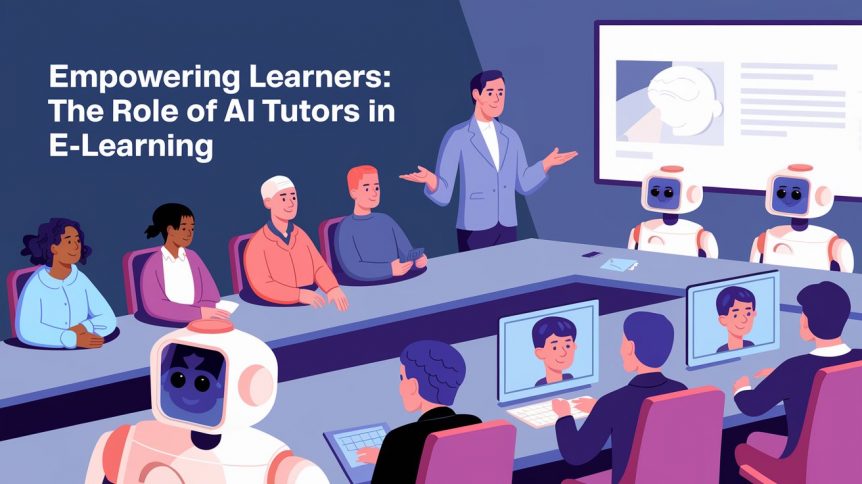Empowering Learners: The Role of AI Tutors in E-Learning
The advent of artificial intelligence (AI) in the educational sector has heralded a new era of learning, where traditional barriers are being dismantled, and personalised education is becoming a reality. AI tutors, an innovative application of AI in e-learning, are at the forefront of this revolution, transforming how learners interact with educational content. This blog post delves into the multifaceted role of AI tutors in e-learning, exploring their impact, potential, and how they align with contemporary educational strategies and theories.
The Emergence of AI Tutors
AI tutors represent a significant leap from conventional e-learning modules by offering an interactive, personalised learning experience. These intelligent systems are designed to adapt to the individual learning pace and style of each student, offering tailored guidance, feedback, and resources to facilitate effective learning.
Breaking Language Barriers
One of the most significant impacts of AI tutors is their ability to break language barriers in tutoring. By providing multilingual support, AI tutors make learning accessible to a broader audience, ensuring that language is no longer an obstacle to acquiring knowledge. This capability not only democratizes education but also supports the global mobility of learners and educators.
Enhancing Feedback Mechanisms
Feedback is crucial in the learning process, and AI tutors excel in offering immediate and personalised responses to learners. As highlighted in the exploration of AI’s efficiency in gathering module feedback, these intelligent systems can analyse learner inputs to provide customised feedback, helping students to understand concepts more thoroughly and rectify mistakes in real-time.
Facilitating Scenario-Based Learning
Scenario-based learning is a profound way of imparting practical knowledge and skills, allowing learners to apply theoretical concepts to real-world situations. AI tutors can enhance scenario-based learning by creating dynamic, interactive scenarios tailored to the learner’s progress, interests, and learning objectives. This method not only makes learning more engaging but also ensures better retention and application of knowledge.
Supporting Malone’s Theory of Intrinsically Motivating Instruction
The integration of AI tutors in e-learning aligns well with Malone’s Theory of Intrinsically Motivating Instruction. By providing challenges, fantasy, and control, AI tutors can make learning more enjoyable and motivating. Personalised challenges push learners to their optimum level of competence, fantasy elements add context and intrigue to the learning material, and giving learners control over their learning process enhances engagement and satisfaction.
Quality Assurance and E-Learning Development
In the realm of e-learning development, AI tutors play a pivotal role in ensuring quality assurance. By continuously gathering and analysing data on learner performance and engagement, AI systems can identify areas of improvement in e-learning modules, ensuring that the content remains relevant, engaging, and effective.
Conclusion
The integration of AI tutors into e-learning is transforming the educational landscape by providing personalised, engaging, and effective learning experiences. As these intelligent systems continue to evolve, they promise to unlock new potentials in how we teach, learn, and assess, making education more accessible, inclusive, and impactful. The role of AI tutors in e-learning is not just a testament to technological advancement but a step towards a future where learning knows no boundaries.
As we embrace this future, it’s essential to continue exploring, developing, and refining AI-based educational tools to ensure they align with pedagogical objectives and contribute positively to the learning experience. The journey of integrating AI in education is just beginning, and its full potential is yet to be realised.
